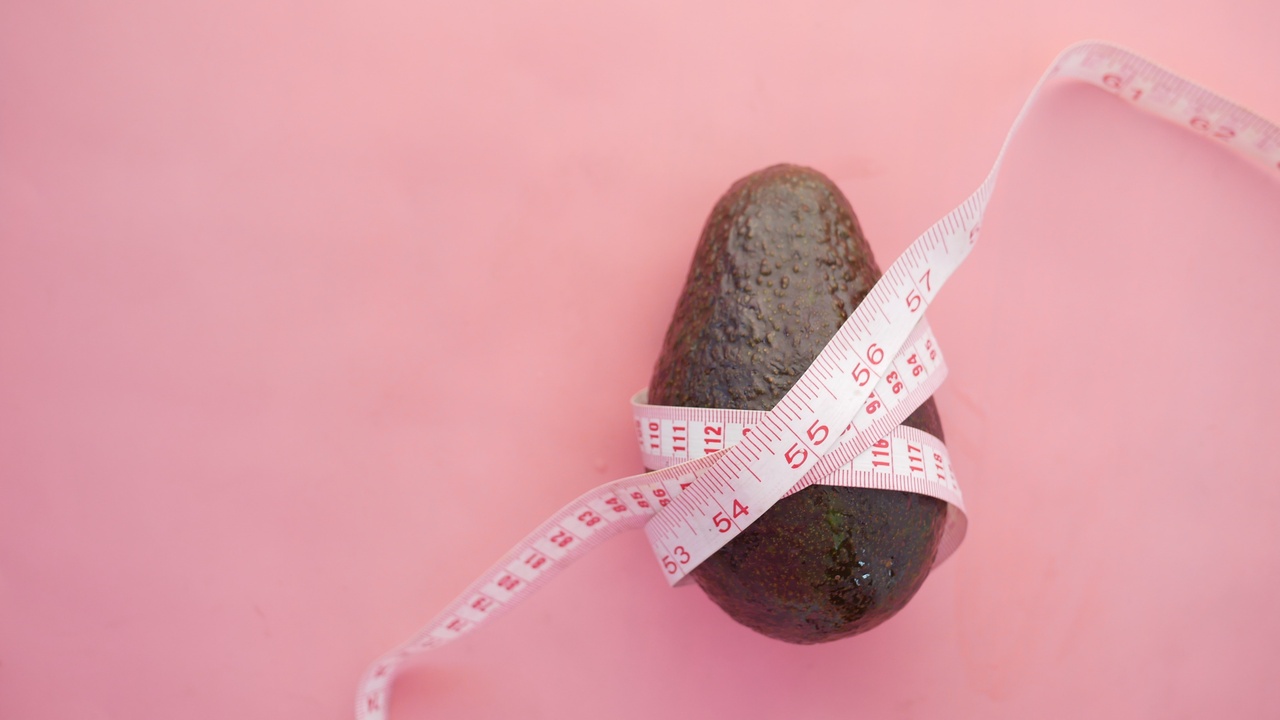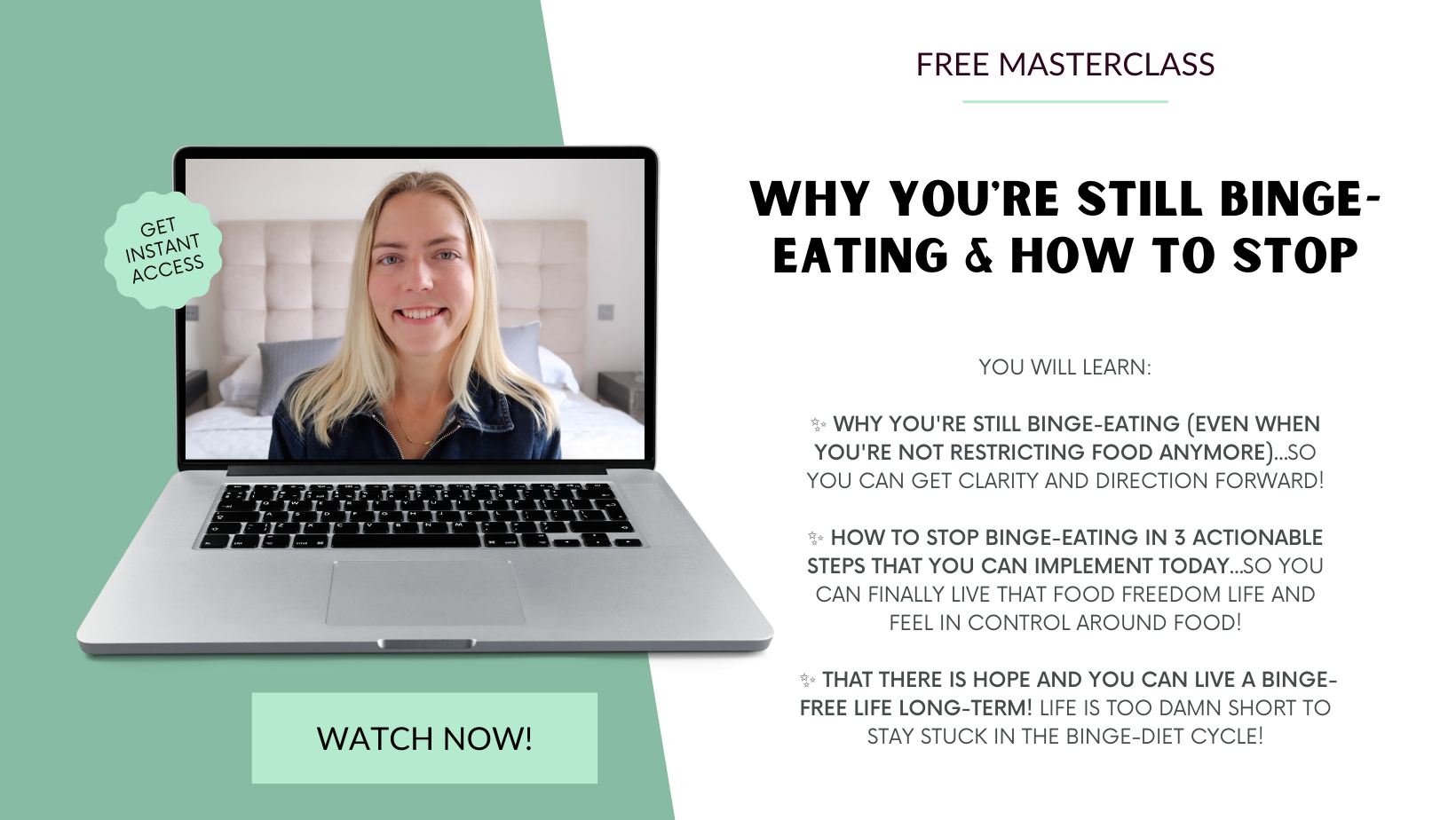What Is Orthorexia: 6 Steps To Treating It
Apr 15, 2022
How many times have you heard “Wow, you’re so good!” in response to your restrictive eating habits? Or, how many Instagram posts have you seen showing you “healthy swaps” to foods you already thought were healthy?
Diet culture is so pervasive that it can be hard to tell when our initially innocent desires to “eat clean” has gone too far and our obsession with being healthy is actually unhealthy.
To understand orthorexia, first let's look at a definition. Although the illness isn’t officially recognised in the DSM, BEAT have defined the illness as:
“An unhealthy obsession with eating “pure” food. Food considered “pure” or “impure” can vary from person to person. This doesn’t mean that anyone who subscribes to a healthy eating plan or diet is suffering from orthorexia. As with other eating disorders, the eating behaviour involved – “healthy” or “clean” eating in this case – is used to cope with negative thoughts and feelings, or to feel in control. Someone using food in this way might feel extremely anxious or guilty if they eat food they feel is unhealthy.”
What causes orthorexia?
We live in a society which is obsessed with perfectionism, “wellness” and looking a certain way. As a result many of us go on a pursuit for the “perfect” diet. We place certain foods on a pedestal and hope that if we can kind the “perfect” diet, we too will achieve perfection. Ironically, chasing this dream more often than not causes more harm than good.
All of this, I believe, comes from giving food far too much power. We all, naturally, want to do good. But, when we start labelling certain foods as good and bad, it means that whole food groups can be demonised and excluded entirely.
What are some of the symptoms of orthorexia?
- Excessive concern about the health of ingredients
- Compulsive checking of ingredients lists and nutrition labels
- Avoidance of food prepared by others / avoidance of eating out
- Cutting out whole food groups (eg. carbs, fats, sugar, all meat, all animal products)
- Feeling distressed when “healthy”/“safe”/“clean” foods aren’t available
- Wasting time worrying about what food made be served at an incoming event
If that sounds familiar to you - here are some ways to begin letting go of orthorexic tendencies:
1. Get to the root of the issue
Let’s jump straight in here and look at healing from the root of the issue. For many, orthorexia stems from a fear of weight gain or desire to lose weight - essentially wanting control over your body shape so that we can control what others and we think of ourselves. We do live in a fatphobic society, there’s no getting around that. People in bigger bodies are treated differently from medical care and job opportunities, to dating and making friends.
That desire to control your body weigh/shape is understandable but it’s also what can lead us to a point where we’re scared of carbs and having protein shakes as meals.
I’d absolutely recommend looking under the hood at why you may be trying to micromanage your body weight but, more importantly, begin to change the way you view your body. To get started on that, here’s a free Body Image Boost (3 awesome tools explained and accompanied by guided meditations!).
2. Take it slow in releasing unhelpful behaviours
It’s likely that your views and behaviours around food have changed quite a bit over time so let’s not try to get rid of it all overnight. Letting go of things like calorie counting, activity tracking, reading every food label, or fearing highly processed foods can take time.
I recommend writing down a list of your unhelpful or excessive food thoughts and behaviours and approach them one at a time. For example, for one week focus on not reading every food label. Take it slow!
3. Get help with Orthorexia Nervosa
It can be tough to overcome something that’s likely infiltrated your life on your own. Having someone by your side can help immensely. I’m always here for that - feel free to DM me on Instagram if you need!
Of course, there are many other resources and specialists out there too.
4. Look at your environment
As mentioned, our society is wellness-obsessed and that influences the way we think. So do your best to curate the information you consume. Mute or unfollow people on social media (or IRL!) who affirm your orthorexic beliefs.
Can you remove yourself from conversations that revolve around slating celebrities for gaining weight?
Furthermore, can you add content that will help build new, more flexible beliefs about food and your body?
5. Re-expose yourself to ‘unhealthy’ or ‘bad’ foods
So we’ve looked at letting go of behaviours like calorie counting and excessive weighing but it’s also helpful to actively add in more of those ‘bad’ foods. Of course, we also want to look at the language there and use more neutral language around food.
Write out a list of foods that you feel guilty or stressed about eating, foods that you may not have allowed for a while.
Again, let’s go slow with this and take it one at a time. Can you allow in these foods more without restricting afterwards? Notice how nothing terrible happens when you eat these foods. Praise yourself for creating more balance in your life!
6. Do exercise that you don’t associate with calorie burn or body sculpting
Orthorexia isn’t just all about ‘pure’ and ‘clean’ food, it affects your exercise relationship too because after all it’s about controlling your body. I know when I was at my most orthorexic point, I was forcing certain exercises that I associated with calorie burn like running (it may be different for you!). Exercise wasn’t fun and I was always tracking stats like calories.
It may be worth you taking a break or toning down that exercise and allowing in other forms of movement that you personally don’t associate with controlling your body shape.
Can you let exercise be a form of play with no underlying agenda? Think of what you loved to do as a kid or teenager - can you do something inspired from that?
Hopefully these tips have inspired you to take small and doable action towards a more relaxed and balanced food and body relationship.
If you’re ever looking for more in-depth help, feel free to check out my 30 Day Reboot course or DM me on Instagram @freewithbrid
With Love,
Bríd
Start your food and body healing journey with the FREE masterclass
"Why You're Still Binge-Eating & How To Stop"


